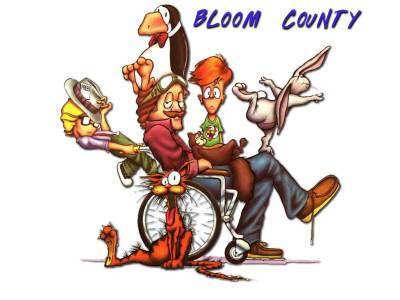 Some days are lost to writing because you have to look after real life every now and then. Spent most of yesterday running around getting my car tended to. It’s not something I have to do very often, given that my daily commute is less than 5 miles round trip.
Some days are lost to writing because you have to look after real life every now and then. Spent most of yesterday running around getting my car tended to. It’s not something I have to do very often, given that my daily commute is less than 5 miles round trip.
Did get caught up on Fringe, which has been renewed for a fourth season. In the tradition of a good soap opera, why let a pregnancy drag on for weeks and months when you can speed it up to a matter of mere days. Throw in the complication of Viral Propagated Eclampsia to put both the baby and the mother at risk. Stir in a meddling mother for good measure. I wondered if a fetus was stunned when its mother is tasered while at the same time I found myself thinking of Lost and the imperiled mothers being taken by the Others. Good to see Henry back as The Cabbie Who Knew Too Much. Loved the exchange when Fringe Division found him. Lincoln yells, “Hands on the wheel” and Charlie yells, “Get out of the car.” Poor confused Henry asks, “Which one is it?”
The “joint expander” reminded me of a medieval rack, and that was one of the biggest needles I’ve ever seen. Lincoln gets to profess his love when he thinks Faux-livia is about to die. I wonder how that will play out. And then we get the twist ending to find out who was behind the kidnapping and experimentation. Should have guessed.
Things that are different in the alternate universe: NY license plates have a dark band at the top. Opus the Penguin is Opus the Pea Hen. Taxi Driver was directed by Coppola. Typhoid shots are required. Things that are the same: It’s the Year of the Rabbit on both sides.
We watched Hereafter last night, the Clint Eastwood film starring Matt Damon as a psychic who can connect to the other side when he touches grieving people, and who among us hasn’t lost someone? The movie drew mixed reactions when it was released, and I can see why. It isn’t a film for the impatient.
In a way, it’s three movies in one, one of which is a French film with subtitles. They come together in the end, of course, but for a while it baffled me how people from three different countries could possibly intersect. The writer manages this without stretching credibility too much.
It starts with an all-too-real depiction of the 2004 Indian Ocean tsunami that killed over 200,000 people. The footage was almost impossible to watch for anyone familiar with the recent news reports from northern Japan. A famous French news journalist on vacation with her boss/lover is swept away by the waves while she’s buying gifts for his children, a task he neglected. She dies for a while and has a vision of the other side that irreparably alters her world view. She’s distracted when she gets back to work, and when she’s offered the chance to write a Mitterand exposé she instead begins work on a book about people who’ve had similar visions—reporting on what she sees as a conspiracy of silence because such people are often discouraged from talking about these experiences.
Damon’s George has retired from the business of doing readings for people because it overwhelmed him. His exploitive brother calls his power a gift, but he calls it a curse. He’s like Johnny Smith from The Dead Zone, retreating from the touch of humanity because of the demands it places on his life. Whenever he tries to break out of his shell, people insist on knowing his past. Once they find out, they all insist on a reading. When he accedes, it is usually to the dismay of the subject, as with the attractive young woman (Bryce Dallas Howard) he meets at an Italian cooking class. The messages from the other side are often ones of regret about things not atoned for in life.
While I cogitated over the film, I came to a conclusion: George may not have been communicating with the other side at all. He learned nothing that his subjects didn’t already know, and had no insight into the nature of the land beyond. My theory is that he could read the minds of his subjects and provided them with what they seemed to need. He gave his brother’s business partner permission to act on his feelings toward his late wife’s caretaker. He told the young boy to stop pining for his dead twin and get on with life. He tells a young woman that a relative wanted to apologize. And so on. I was amused to find this exact theory espoused in Roger Ebert’s review of the film. Almost word for word!
The movie doesn’t assert any belief in a hereafter, nor does it deny such a thing. Mostly it’s about mankind’s need to know what happens next and, in a way, that need is driven by the possibility that people might get a chance to communicate after death all the things that were left unsaid in life. Two thumbs up.

